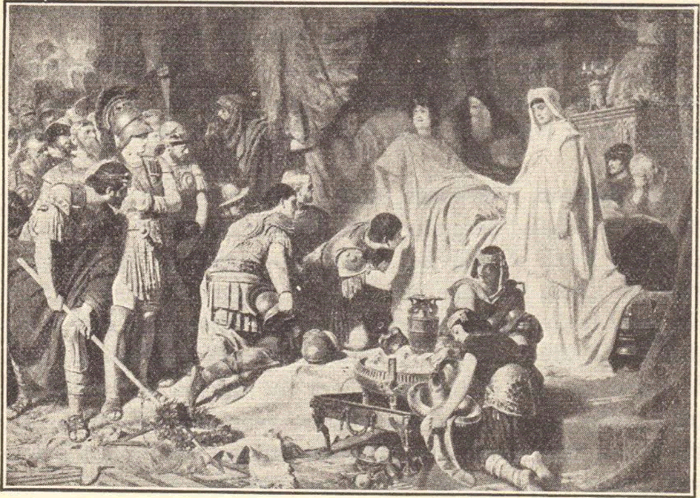Death of Alexander the Great. From a modern painting. Around his bed were gathered his generals. They asked whom he wished to succeed him. Drawing his signet ring from his finger, he said, "To the strongest." Alexander the Great, born in ancient Macedonia in 356 B.C.E., died in Babylon in 323 B.C.E. Click here to enlarge.
The death of Alexander the Great in 323 B.C.E. triggered widespread chaos and power struggles across his vast empire. With no clear successor—his only son was an infant—his generals, known as the Diadochi, fought fiercely for control. The once-unified empire fractured into multiple Hellenistic kingdoms, including the Seleucid Empire, Ptolemaic Egypt, and the Antigonid dynasty in Macedonia. These rival leaders waged wars against each other for decades, leading to political instability and shifting alliances. While Greek culture continued to spread throughout the former empire, the lack of central authority marked the end of Alexander's vision of a united world. The turmoil ultimately set the stage for the rise of Rome and other regional powers in the centuries to follow.
|




















































